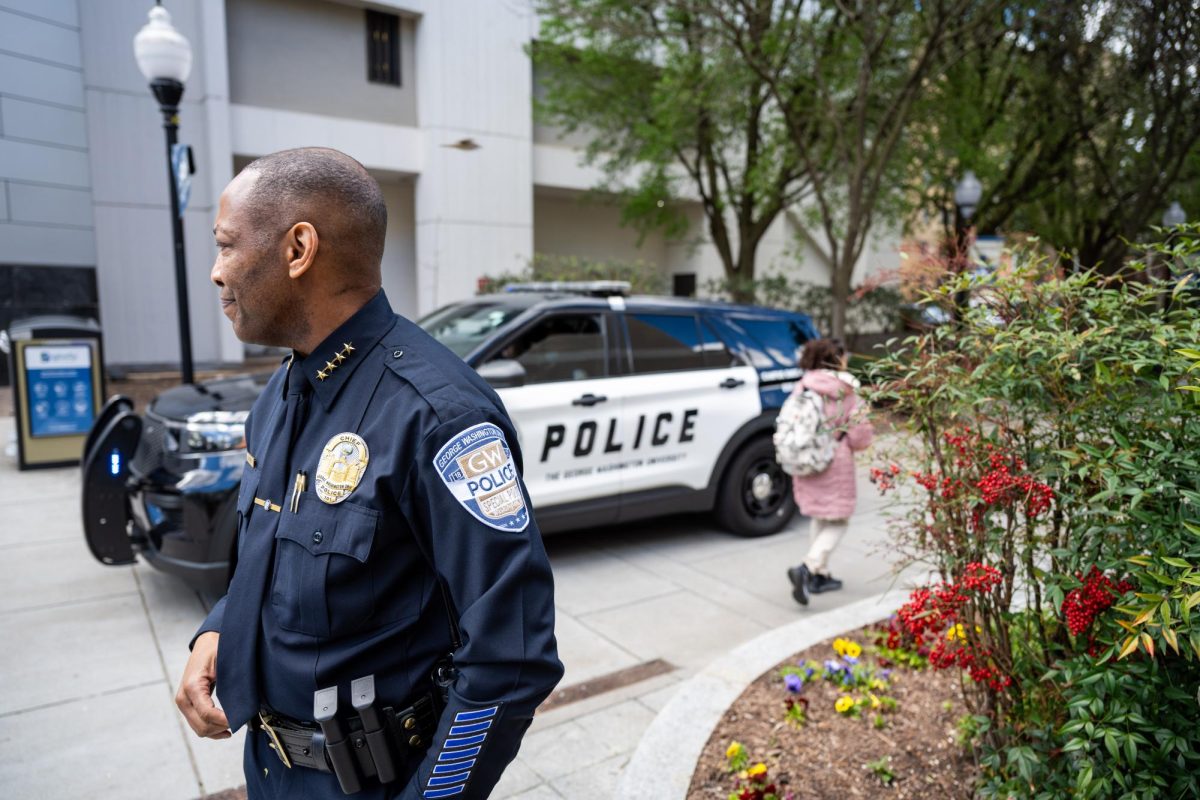
This post was written by Hatchet staff writer Ryan Lasker.
GW kicked off a two-day “Food Tank Summit” in the Jack Morton Auditorium on Wednesday, hosting panelists to talk about agriculture and the business side of the food industry.
University President Steven Knapp opened the summit, which will include nearly 90 speakers who are experts in topics like sustainable food research and agricultural studies.
“I am struck by the depth of [GW students’] interest in living healthier lives and their desire to know more about where their food comes from,” Knapp said.
The event is co-hosted by the Food Tank, a nonprofit that works to address problems in the global food industry, like hunger and obesity.
Kathleen Merrigan, the executive director of GW’s Sustainability Institute, keynoted the event.
“Food, first and foremost, is a political problem,” she said.
Merrigan highlighted child hunger, arguing that one way to address it is to ensure women have the same opportunities as men. Merrigan joined GW last winter after working as the second-highest official in the U.S. Department of Agriculture.
“The World Bank and the Food Agricultural Organization have both put out reports that say if women were given the same access to education, to resources, to leadership positions as men, world food production would increase by 30 percent, which is the equivalent of feeding 150 million people,” Merrigan said.
Knapp’s wife, Diane Robinson Knapp, also spoke about her work with GW’s Urban Food Task Force – a group of faculty, students and volunteers that has launched initiatives to offer cooking lessons and bring bags of produce to low-income areas of the city.
Robinson Knapp, whose background is in clinical nutrition, said there has been a “groundswell of interest and involvement” in the task force since it launched in 2012.




